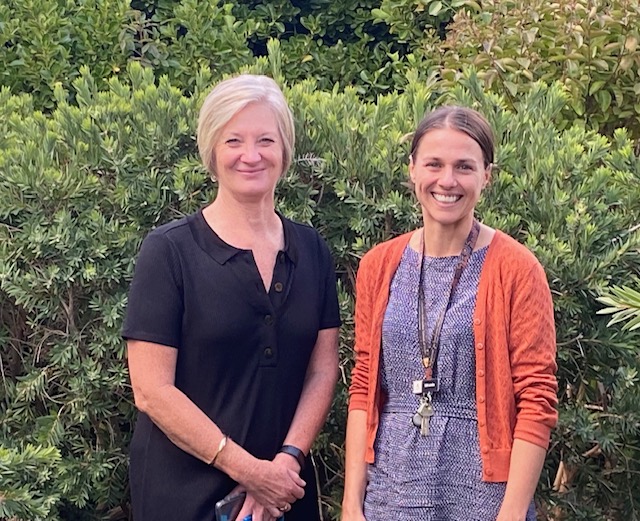Wednesday 28 July 2021
The experience of the recent Adelaide Hills bushfires has prompted a new Community Resilience and Readiness program for fire affected communities to increase their psychological and practical preparedness for future disasters.
Funded by Country SA PHN, as part of the Australian Government mental health response to bushfire trauma, the program is designed to support Adelaide Hills communities increase their resilience for future bushfires and other disasters. Community Resilience Officers (CROs) are leading the program - assisting fire impacted community’s recovery by supporting their mental and emotional preparedness.
The idea germinated when Adelaide Hills CRO, Miranda Hampton was working with the Cudlee Creek and other hills communities following recent devastating bushfires and identified gaps in people’s practical and psychological preparedness and education. Miranda could see the potential benefits of building a resilient community – one that is emotionally and mentally prepared to face future disasters - rather than just react to them.
“I was conscious that recovery services would have an end point and that the community needed help beyond this to be proactive and develop resilience strategies for the long term – rather than just recovery,” said Miranda.
“That it is a marathon – not a sprint - and the more prepared the community is for whatever comes next, the better.”
Country SA PHN’s Bushfire Response Coordinator, Sally Patten, agreed and collaborated with Miranda to make the CRO role a reality. Country SA PHN is now funding seven CROs in four recently affected bushfire communities in the Adelaide Hills, Kangaroo Island, Yorke Peninsula and the South-East.
“As the emergency response services were wrapping up, we could see the importance of keeping the great work of many in these communities going and continuing that momentum in a capacity building role,” said Country SA PHN, Chief Executive Officer, Kim Hosking.
“We’re very pleased to fund the CROs in such an important initiative to assist communities to face inevitable future challenges with resilience, preparedness and a sense of empowerment.”
One of the big gaps Miranda identified was a lack of preparedness of children.
“Children had varied experiences, some stayed and helped defend properties, others were evacuated without warning and without feeling in control of their situation,” said Miranda.
“There are a lot of children in the community needing assistance to cope with what happened.
Many parents reported not knowing how to help children prepare – needing help with appropriate language etc.”
Miranda and fellow Adelaide Hills CRO Sue Thomas are engaging Emerging Minds to work with Adelaide Hills families with the Community Trauma Toolkit, in partnership with Adelaide Hills Council.
Other planned future activities include: The formation of the Adelaide Hills Resilience Network (bringing together the knowledge and lessons learnt from bushfire experiences across the hills in one space); Mental Health First Aid; promoting the ifarmwell online tool kit; Australian Red Cross Community Led Emergency Resilience Sessions and the development of the Adelaide Hills Council website to be a central source of resilience and preparedness information for the community.
According to the Australian Psychological Society: “You are more likely to stick with a household plan if you have also prepared psychologically for a bushfire. Being able to manage your emotions in an emergency (that is being psychologically prepared), can save your life and that of others.”
“It is recognised that traditionally, bushfire preparedness has primarily focused on physical preparedness, but that it is psychological preparation that will reduce or manage the potential mental and emotional impacts of a bushfire,” said Miranda.
-ENDS-
To find out more about the Community Resilience Program you can email Miranda at: mhampton@ahc.sa.gov.au
If this story has raised personal concern please contact:
For immediate medical assistance in an emergency always call Triple Zero (000) and ask for the ambulance.
For non-life-threatening mental health emergencies, phone the 24/7 Mental Health Triage Service 13 14 65.
Counselling Service Regional Access (24 hours)
Free professional telephone and online counselling for people 15 years and older living or working in regional South Australia.
Phone 1300 032 186 for immediate support or get online support from Regional Access online counselling
Lifeline (24 hours)
Phone 13 11 14 for immediate support
Lifeline online counselling (6.30 to 11.30 pm, South Australian time)
Kids Helpline (24 hours)
Free counselling for people 5 to 25.
Phone 1800 55 1800 or get help online from Kids Helpline online counselling

